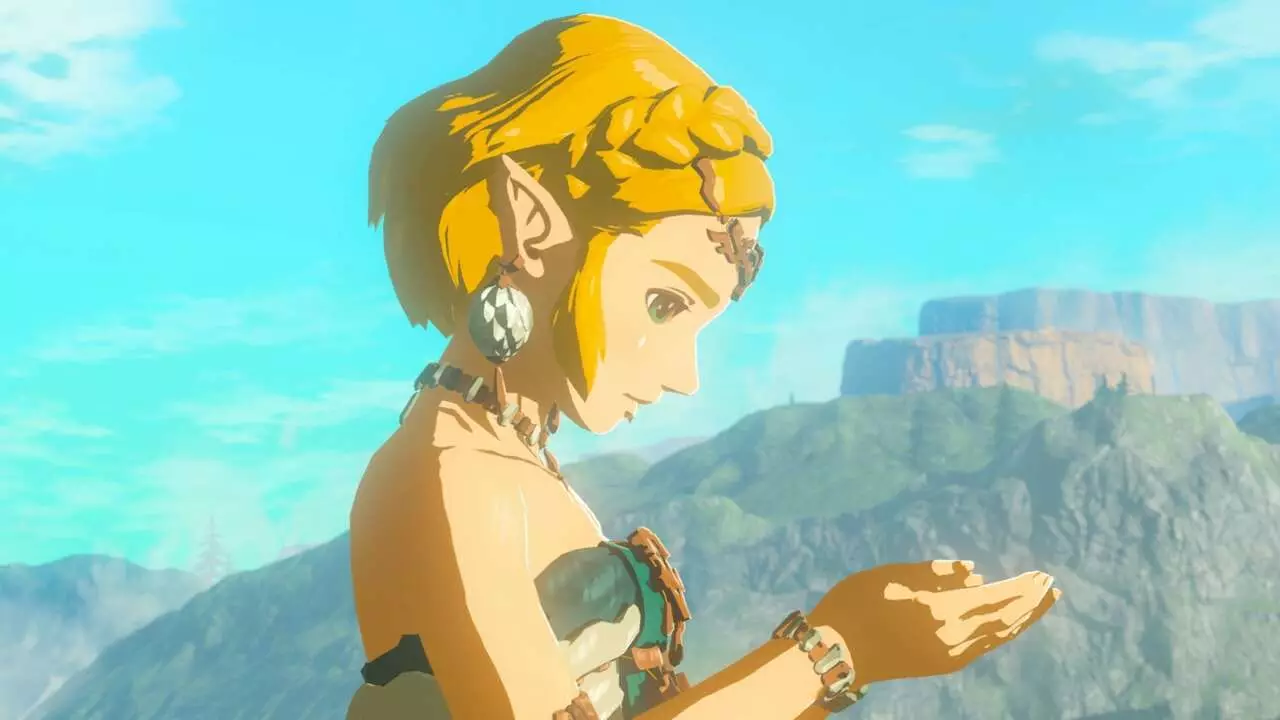In a notable development for gamers eagerly awaiting the Nintendo Switch 2, a significant change has occurred in the way Nintendo communicates the capabilities of cloud saves concerning its flagship titles. Initially, a vague disclaimer suggested that popular games like “The Legend of Zelda: Tears of the Kingdom” would not support cloud save features. However, this statement has now been revised, and gamers can breathe a sigh of relief as details surrounding save data transfer have become more transparent. The transition from uncertainty to clarity illuminates Nintendo’s responsiveness to consumer feedback, underscoring how crucial precise communication is in the gaming industry.
The new disclaimer states, “Save data created in the second save data slot in ‘The Legend of Zelda: Tears of the Kingdom—Nintendo Switch 2 Edition cannot be transferred to ‘The Legend of Zelda: Tears of the Kingdom’ on Nintendo Switch.” Although it sounds cautious, the absence of mention regarding a lack of cloud save transfers from the original Switch to the new platform suggests that these saves will indeed be compatible with the Switch 2. This shift marks a departure from earlier assumptions, sparking excitement among players who previously worried about losing their invested time and progress.
The Implications of Cross-Generation Compatibility
The investment made by players into the original Switch’s catalog—including “Donkey Kong Bananza” and “Super Mario Party Jamboree + Jamboree TV”—is substantial. Now, the idea that players can seamlessly transition to the Switch 2 without losing access to their cherished save files and gaming achievements speaks volumes about Nintendo’s focus on user experience. This compatibility approach may serve as a critical factor in enticing current Switch users to upgrade to the newest console.
Moreover, the switch to clear messaging signals a willingness from Nintendo to evolve alongside its users’ needs. In allowing players to transfer their cloud saves and entire digital libraries from the first Switch to the second, Nintendo isn’t just promoting its new system; it’s reinforcing brand loyalty. Gamers are more likely to invest in a new console if they feel that their existing games and progress will continue to be valued—essentially ensuring that their transitions between console generations are smoother and filled with minimal disruption.
Enhanced Features and Gameplay: A Leap Forward
With the announcement of enhanced versions of beloved titles on the Switch 2—particularly pertaining to “Breath of the Wild” and “Tears of the Kingdom”—the excitement in the gaming community is palpable. Fans of the series can look forward to not just graphical improvements but also new functionalities, like the Zelda Notes app, which confirms that Nintendo is not resting on its laurels. The app’s in-game achievements and multiplayer features elevate the gaming experience, making it more community-focused. The social aspect allows gamers to connect and share discoveries, enhancing the sense of camaraderie that gaming provides.
Additionally, the prospect of upgrading from the original version to the enhanced Switch 2 version for a mere $10 is practically a steal in the gaming world. It demonstrates Nintendo’s understanding of its audience’s budgetary concerns while encouraging users to embrace the latest technology.
Fostering Tradition with Modern Solutions
Nintendo’s decision not to bind Game-Key Cards to user accounts reflects an understanding of the community’s desires for flexibility—reflecting long-standing gaming traditions that allow for sharing and borrowing among friends. This characteristic of the new console showcases an accessibility paradigm that recognizes the importance of communal gaming experiences. Whether players are lending their games or flaunting their progress online, this communal spirit rejuvenates traditional gaming dynamics in a digital world increasingly marked by exclusivity and restrictions.
With a pre-order date set for April 24th and an enticing price point for both the console and accessories, Nintendo appears poised to capture attention and excitement. The absence of a price increase amid rising tariffs speaks to a commitment to customer satisfaction, as does the strategic selection of launch titles that resonate with nostalgia.
Through savvy communication and an unwavering focus on enhancing user experience, Nintendo is strategically navigating the transition into the next console generation, addressing both the concerns and desires of its dedicated fan base. Ultimately, this approach may not only lead to robust early sales figures but also set a precedent for other companies in the gaming industry to follow suit.

